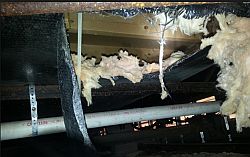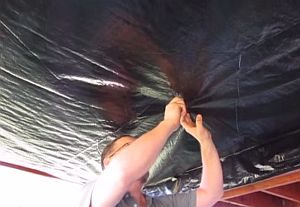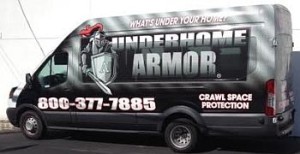Wet Insulation Under a Mobile Home is one of the most concerning problems is mobile homes after the storms and wet weather we’re experienceing in Florida. In this article, we will explore the various problems that arise when insulation becomes wet, the causes behind this issue, and the potential solutions to protect your mobile home and ensure the safety and well-being of its occupants.
Understanding Insulation in Mobile Homes
 Before delving into the problems related to wet insulation, let’s first understand the role of insulation in mobile homes. Insulation is a crucial component of any dwelling, including mobile homes. It helps regulate indoor temperature, keeping the interior cool in summer and warm in winter. Moreover, proper insulation can significantly reduce energy consumption and lower utility bills.
Before delving into the problems related to wet insulation, let’s first understand the role of insulation in mobile homes. Insulation is a crucial component of any dwelling, including mobile homes. It helps regulate indoor temperature, keeping the interior cool in summer and warm in winter. Moreover, proper insulation can significantly reduce energy consumption and lower utility bills.
Mobile homes often use underfloor insulation, which is installed beneath the structure, helping to maintain a comfortable environment inside the home. Common materials used for underfloor insulation include fiberglass, foam board, or spray foam. However, if this insulation becomes wet, it can lead to a host of problems.
Problems with Wet Insulation under a mobile home
Reduced Insulation Efficiency: When insulation becomes wet, its effectiveness diminishes significantly. The trapped moisture reduces the material’s insulating properties, resulting in heat transfer that can lead to uncomfortable living conditions and higher energy bill
Mold and Mildew Growth: Moisture in insulation creates an ideal breeding ground for mold and mildew. These fungi not only degrade the insulation material but also release spores into the indoor air, posing serious health risks to the mobile home’s occupants. Prolonged exposure to mold can trigger allergies, respiratory issues, and even exacerbate asthma symptoms.
Structural Damage: Wet insulation can seep into the wooden framework of the mobile home, leading to rot and decay. This not only weakens the structural integrity of the home but can also attract pests such as termites, further worsening the damage.
Deterioration of Flooring: In the presence of moisture, underfloor insulation can cause the floor joists and subflooring to warp or deteriorate. This can lead to sagging floors, making the home unsafe for its inhabitants.
Causes of Wet Insulation under mobile home
Several factors can contribute to the moisture buildup under mobile homes:
-
- Poor Ventilation: Inadequate airflow beneath the mobile home can trap moisture, leading to condensation and subsequent wet insulation. Proper ventilation is essential to prevent this issue.
- Plumbing Leaks: Leaking pipes or fixtures under the mobile home can release water into the insulation. Undetected leaks can exacerbate the problem over time.
- Flooding and Groundwater Seepage: Mobile homes situated in flood-prone areas or with poor drainage systems are susceptible to groundwater seeping underneath, saturating the insulation.
- Inadequate Vapor Barriers: Vapor barriers are essential in preventing moisture from rising up into the insulation. Improper or damaged vapor barriers can allow water to penetrate the insulation.
- Weather-Related Issues: Harsh weather conditions, such as heavy rainfall or snow, can also cause moisture to seep under the mobile home, affecting the insulation.
Solutions and Prevention
 Fortunately, there are several steps that mobile homeowners can take to address and prevent wet insulation problems:
Fortunately, there are several steps that mobile homeowners can take to address and prevent wet insulation problems:
- Regular Inspections: Conduct routine inspections of the underfloor area to identify any signs of moisture or leaks. Early detection can prevent significant damage.
- Proper Ventilation: Ensure there is sufficient airflow beneath the mobile home by installing vents or fans. This helps in reducing condensation and humidity levels.
- Vapor Barriers: Install or repair vapor barriers to prevent moisture from reaching the insulation. High-quality vapor barriers act as a protective layer between the ground and the insulation material.
- Address Plumbing Issues: Promptly fix any plumbing leaks or damaged fixtures to prevent water from seeping into the insulation.
- Grading and Drainage: Ensure the area around the mobile home is properly graded to allow water to flow away from the foundation. Proper drainage systems can also help in diverting excess water.
- Insulation Upgrades: Consider using moisture-resistant insulation materials, such as closed-cell spray foam, that are less prone to water damage.
- Raise the Mobile Home: Elevating the mobile home on piers or blocks can create a crawlspace, providing better air circulation and reducing the risk of moisture buildup.
 Call UnderHome Armor today for problems with wet Insulation in your mobile home
Call UnderHome Armor today for problems with wet Insulation in your mobile home
Wet insulation under mobile homes can lead to a host of problems, compromising the home’s comfort, structural integrity, and the health of its occupants. Understanding the causes and consequences of this issue is essential for taking proactive measures to prevent it. Regular inspections, proper ventilation, and maintaining a well-drained foundation are some of the key steps in ensuring the longevity and safety of a mobile home. By addressing wet insulation problems promptly and employing preventive measures, homeowners can enjoy a comfortable and healthy living environment beneath their mobile homes for years to come.
Mailing Address
Clearwater, fl 33759
4798 S. Florida Ave
Lakeland fl 33813
4411 Bee Ridge Road
Sarasota, fl 34233
2046 Treasure Coast Plz
Vero Beach, FL 32960
13650 Fiddlesticks Blvd
Fort Myers, FL 33912
Underhome Armor Inc. ® Inc. has offices throughout central and southern Florida to ensure fast service for all your Mobile Home needs.
Phone Numbers / Contact Us
- Clearwater Fl and Pinellas County 727 282-2045
- Lakeland Fl and Polk County 863 244-7407
- Sarasota Fl and Manatee, Sarasota and Charlotte Counties 941 243-7561
- Tampa Fl and surrounding areas such as Zephyrhills and Oldsmar 813 606-4742
- Gainesville Fl as well as includes all of Dixie, Gilchrist, Levy, Marion, Citrus, Sumter, Lake Counties 352 551-1610
- Statewide for Florida Toll Free Number 800 377-7885
- Orlando Fl as well as Orange, Osceola, and Seminole counties, and portions of Volusia and Lake counties 407 930-4331